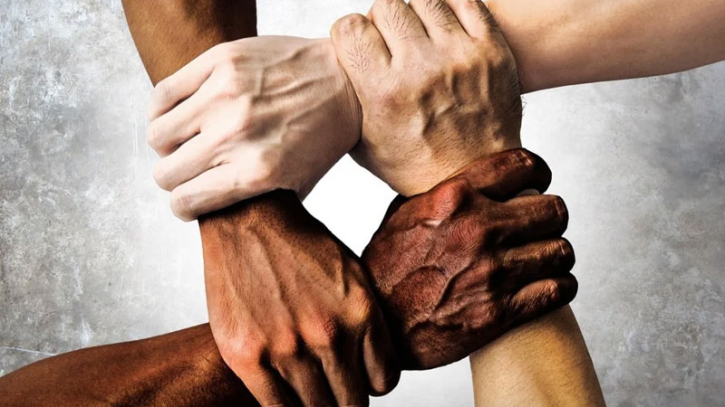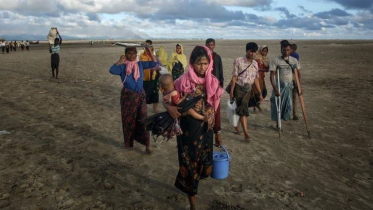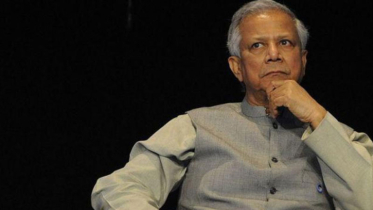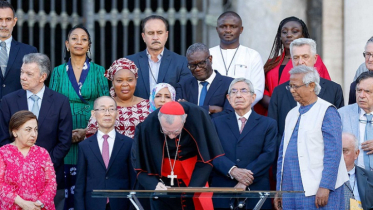The paradox of human rights: A global reflection

Recently, the international community has been seeing a significant sequence of events occurring in the United States. The pictures being broadcasted from universities and streets portray a country struggling with its moral compass, its principles, and the fundamental nature of its professed beliefs. The central focus of this tale centers on the Palestinian struggle, but its impact goes beyond the boundaries of geopolitics, exploring the core ideas of human rights and the exercise of governmental authority.
Prime Minister Sheikh Hasina of Bangladesh has astutely posed thought-provoking inquiries, challenging the credibility of human rights in a country frequently praised as a stronghold of liberty and democracy. Her critique, arising from the mistreatment of pro-Palestinian demonstrators and the recent series of fatalities affecting Bangladeshis in the United States, questions the portrayal of the United States as an exemplar of fairness and freedom.
The crux of the issue is the sacredness of the right to protest, a fundamental principle of democratic society. The images of apprehensions, including the detainment of a female professor, depict a clear and striking portrayal of a country struggling with opposition. When those in power employ physical coercion against peaceful protesters, it raises the fundamental inquiry: what are the limits of individual liberty in a nation that prides itself on freedom?
Prime Minister Sheikh Hasina's commendation of the Bangladeshi police's professionalism and calm highlights the dedication and integrity of the country's law enforcement professionals. By referencing the particular instance of violence prevention, she emphasizes to the audience that the integrity of the legal system can only be preserved in the absence of intimidation and mistreatment. By providing an example involving American police and discussing the potential consequences, she prompts her audience to consider other methods of maintaining law and order globally. This form of commendation not only acknowledges the current problems but also commends the police for their endeavor to provide a secure atmosphere while upholding human rights.
The fatalities of two individuals from Bangladesh on American territory serve as a somber indication of the susceptibility experienced by immigrant groups, frequently in search of shelter or prospects in the renowned country of aspirations. These tragedies compel us to address unsettling realities regarding structural injustices and the widespread nature of violence that surpasses national boundaries.
However, it is not just the activities of the state that require careful examination, but also the reaction of the global community as a collective entity.
As Prime Minister Hasina accurately highlights, those who are prompt to criticize and provide human rights assessments about far-off states sometimes fail to acknowledge the violations occurring within their territories. Their actions are hypocritical and contradict the ideas they profess to support.
The United States, traditionally seen as a prominent authority in matters of justice, is currently under scrutiny and judgment in the court of public perception. The acts of this entity, both domestically and internationally, are currently being closely examined to an unprecedented degree. The stifling of opposing views, the unrestrained use of force, and the unwavering endorsement of policies that prolong the agony in remote regions undermine its ethical credibility.
However, behind the act of expressing disapproval, there exists a chance for self-reflection and personal development. The escalating voices of dissent, originating from both domestic and international sources, embody a unified demand for responsibility and transformation. This serves as a reminder that the pursuit of justice transcends geographical boundaries, and the pursuit of human rights is a global undertaking.
The US administration's expression of worries over the alleged decline in human rights in Bangladesh is ironic, given its struggle with evident cases of rights breaches within its territory. The United States is currently facing a crisis of conscience, characterized by a forceful suppression of pro-Palestinian protests, instances of police brutality, and targeted violence against immigrant populations. These harsh truths emphasize a troubling contradiction, where a country that is eager to criticize other nations neglects to confront the deep-seated inequities inside its community. This statement serves as a thought-provoking reminder that the pursuit of human rights goes beyond national borders and requires a dedication to self-reflection and responsibility on a worldwide level.
Amidst these turbulent times, let us not give in to hopelessness, but rather utilize the strength of unity and understanding. Let us pay attention to the words of Prime Minister Hasina and request explanations, not only from the US authorities but also from ourselves as individuals belonging to a global society united by our common humanity. Amidst challenges, we must remain resolute in our belief that the quest for fairness is limitless. Only by working together and maintaining strong determination can we create a future where human rights are not only an abstract concept but a tangible experience for everyone.
The obligation to protect human rights goes beyond national borders and ideological differences, emphasizing the global duty to preserve the dignity and liberties of all individuals. Developed nations should adopt a cooperative and respectful approach instead of engaging in blame and condemnation when it comes to the human rights problems in developing countries. Given that every nation faces the difficulties of guaranteeing human rights for everyone, the international community needs to collaborate in unity. To promote a culture of respect and diversity, we may encourage open communication, exchange of successful strategies, and provide assistance instead of criticism.
The fulfillment of human rights for every individual, regardless of their country or circumstances, can only be achieved through the combined efforts of a group and a common dedication to justice.
Writer: DR PRANAB KUMAR PANDAY, Professor in the Department of Public Administration at the University of Rajshahi.
Source: Bangladesh Post.
.png)




